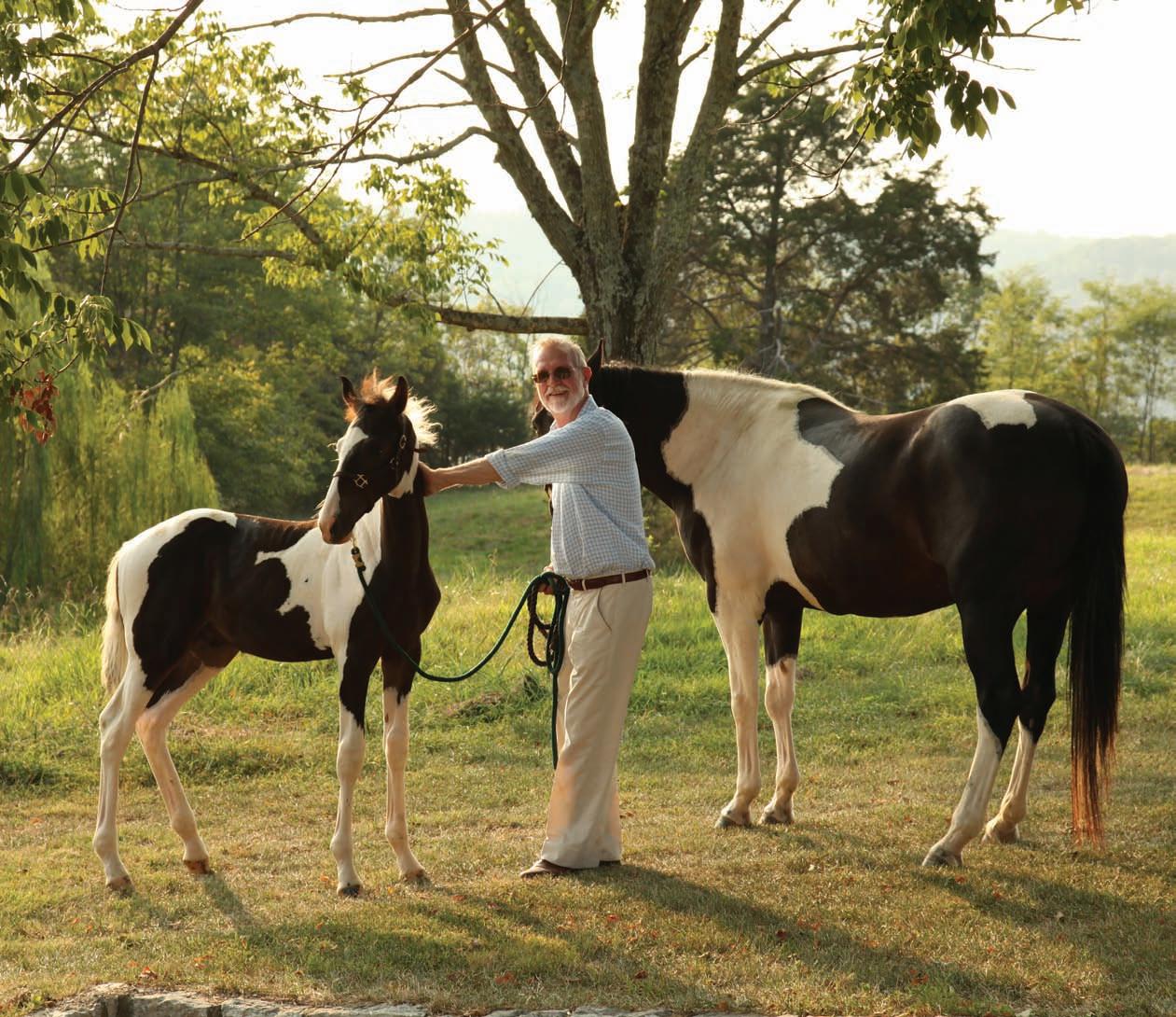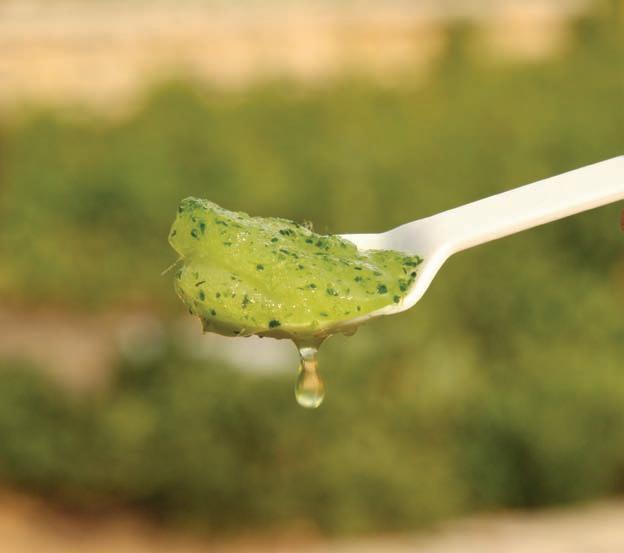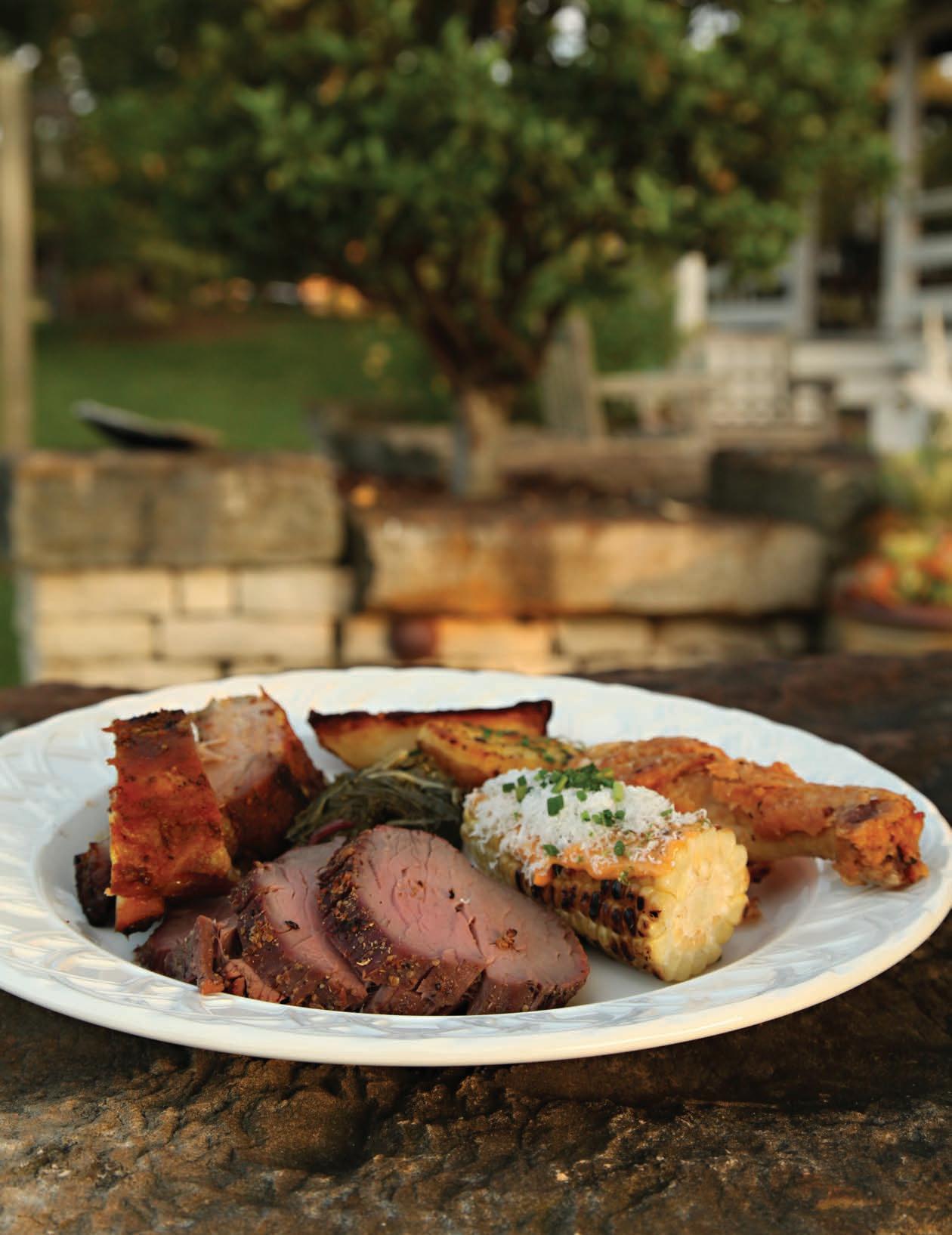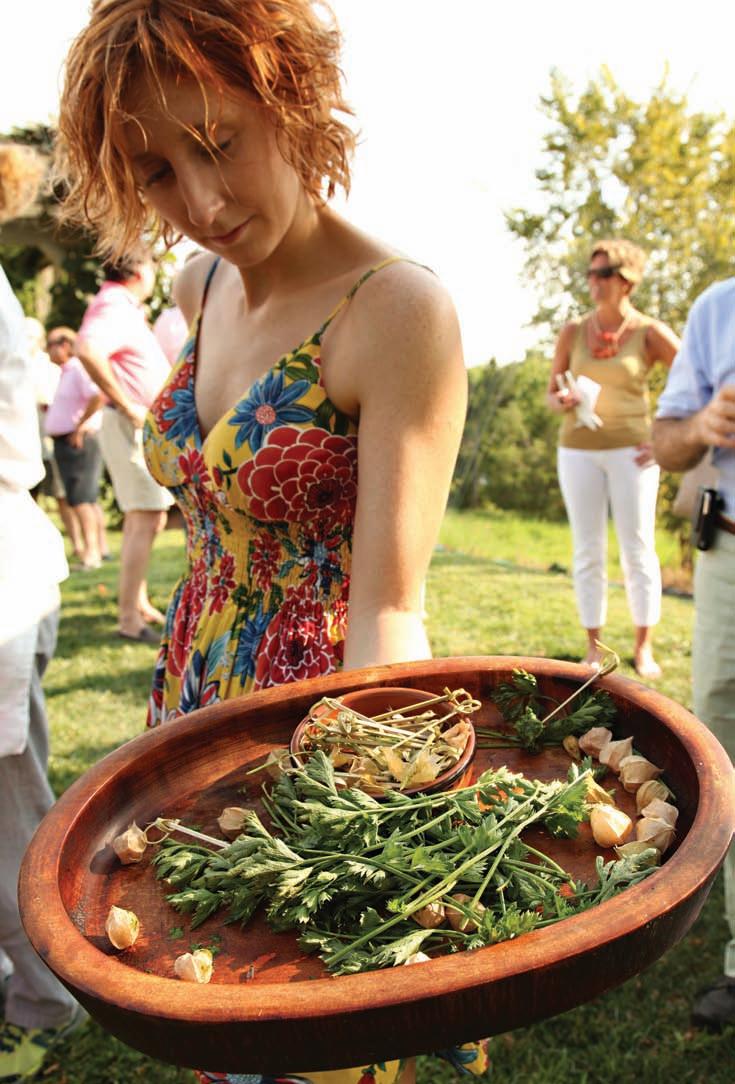
3 minute read
The Fast Growing Power of Slow
The Slow Food Movement in the Bluegrass
Written by Bridget Williams / Photography by Eric Williams
Carlo Petrini founded Slow Food in the mid-1980s to stem what he saw as an alarming disappearance of traditional and artisanal foods as culinary staples of Italian daily life. Today, as a major organizing force in opposing the homogenization of taste and culture, the movement boasts more than 80,000 supporters in 150 countries around the world, with the United States having the second-highest number of members behind Italy.
Brown Forman’s Executive Chef Mark Williams co-founded the Bluegrass chapter of Slow Food USA with former Brown Forman Senior Vice President Lois Mateus Peters in 2006. Since that time, he has served as the official cheerleader for the local movement, organizing events and getting the word out largely via e-mail to the 2,000 individuals on his mailing list. “In relatively short order our society went from eating local and knowing what was in our food to eating mostly imported food and not knowing what is in it, and that has become more and more alarming to people,” he said. Slow Food advocates “slow money” (buying local), “slow gardening” (using heirloom seeds), and “slow arts and crafts” (using organic cotton or wool from an endangered species of sheep, for example).

Williams is quick to point out that the movement is geared towards the general public, not chefs. “Chefs are lousy joiners but great participants, and the great chefs in our community are largely on the bandwagon,” he said. The rising demand for eating local has made these chefs’ establishments bastions of the Slow Food philosophy.

One of the biggest challenges to the Slow Food movement is an acute shortage of local foodstuffs. According to data supplied by the EPA, of the 285,000,000 people living in the United States, less than one percent claim farming as an occupation (and about two percent actually live on farms). Even more alarming is the fact that as the U.S. farm population has dwindled, the average age of farmers continues to rise, with approximately 40 percent of farmers in this country aged 55 years old or older (according to the Bureau of Labor Statistics). Without taking quick steps to encourage more young people to choose to farm, Williams stated, it will be cost-prohibitive for many to buy local, as demand will continue to outpace supply.

Recently appointed regional governor of Slow Food U.S.A., Williams’ will pass on the duties of sustaining and growing the local chapter to Steve Wilson and Maggie Barrett (a fourth-generation owner of Foxhollow Farm). To celebrate Williams’ contributions and to properly usher in a new era of leadership, Wilson and Laura Lee Brown hosted a dinner celebrating local farmers and benefitting Slow Food Bluegrass at their 1,019-acre Woodland Farm, home to the Kentucky Bison Company.


Prepared in concert by Proof on Main Chef Michael Paley (who in 2007 laid the foundation in Kentucky for a national movement championed by "Food and Wine" magazine dubbed “Grow for Good Farm and Table”) and private Chef Nancy Schoenhoff, participating farmers included Barr Farms, Capriole goat cheese, Foxhollow Farm, Kentucky Gold Produce and Woodland Farm.

Slow Food Bluegrass will play a major role in the annual Festival of Faiths celebration, scheduled from November 3 to 9 and themed “Sacred Soil.” The chapter is staging a series of panels, open discussions, and speakers, as well as a local food lunch with food activist and MacArthur “Genius Grant” recipient Will Allen, a “Battle of the Biscuits” and a “Down n’ Dirty” fundraiser to benefit Breaking New Grounds, a nonprofit dedicated to creating jobs through sustainable urban agriculture and turning “waste into wealth” in Louisville.



For information about Slow Food Bluegrass, visit slowfoodbluegrass.org. For a complete calendar and information about the Festival of Faiths visit festivaloffaiths.org or call 502.583.3100.


